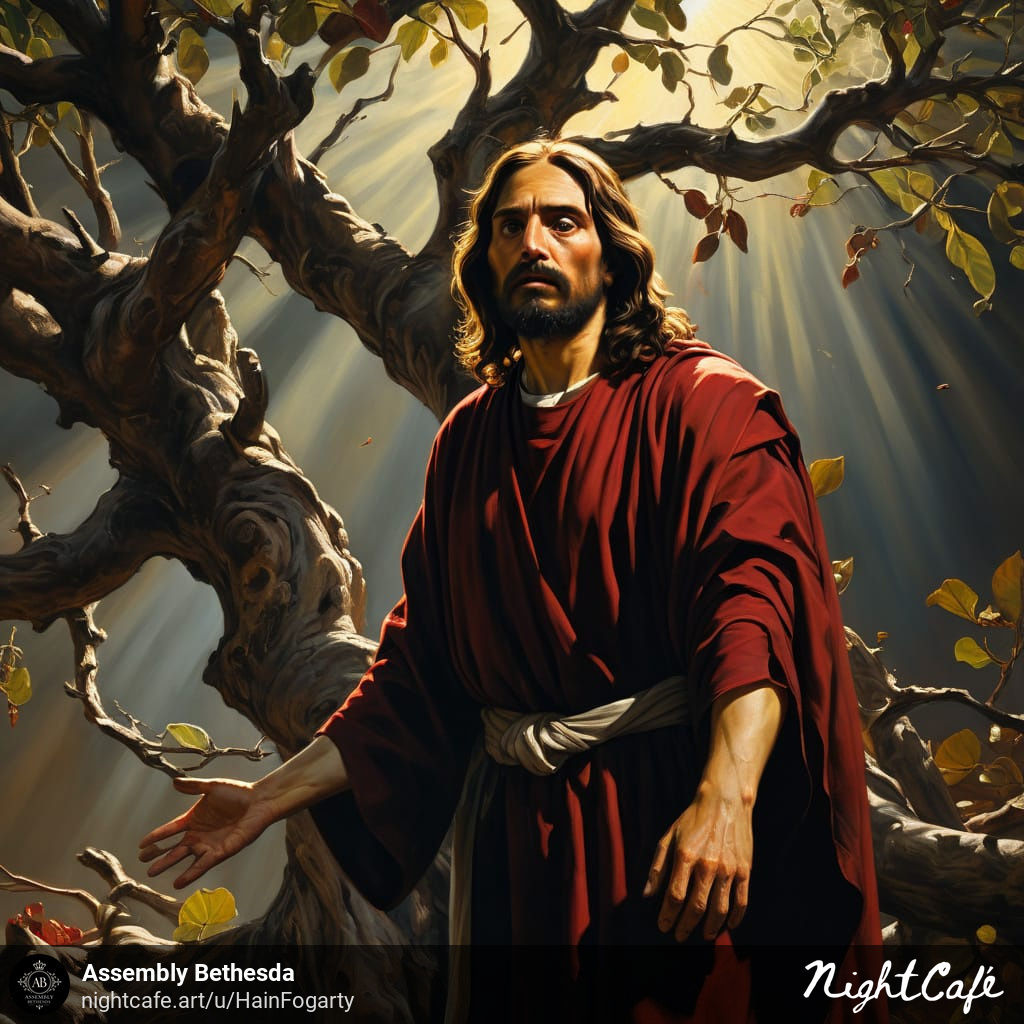The incident of Jesus cursing the fig tree stands among the most striking and symbolically rich moments in the Gospel narrative, appearing in both Mark 11:12-14,20-25 and Matthew 21:18-22. On the surface the act seems abrupt, almost harsh, yet when examined in its full biblical and historical context it reveals profound theological truth about expectation, judgment, and authentic spiritual fruitfulness.
Jesus approaches a fig tree in full leaf during Passover season, expecting to find early fruit. In Palestine fig trees normally produce small edible knobs called paggim before the leaves fully develop, so a tree covered in leaves should already bear these early figs. Finding none, Jesus pronounces a curse: “May no one ever eat fruit from you again.” By the next morning the tree has withered from the roots up. The disciples express astonishment at the speed and completeness of the destruction.
Scripture frequently employs the fig tree as a symbol for Israel. Hosea 9:10 compares the nation to figs, Jeremiah 8:13 declares that God will leave no grapes on the vine nor figs on the tree when judgment comes, and Joel 1:7 describes the locust devastation using the imagery of a stripped fig tree. Jesus deliberately chooses this particular tree because its abundance of leaves creates an expectation of fruit that proves false. The outward display promises nourishment yet delivers nothing, mirroring the spiritual condition of Israel at that time, particularly its religious leadership.
The timing and placement of the story deepen its meaning. In Mark’s Gospel the cursing of the fig tree and the cleansing of the temple form a literary sandwich, with one event framing the other. Jesus curses the tree, enters Jerusalem to drive out the money changers and overturn tables, then returns the next day to reveal the withered tree. This structure binds the two episodes together: both the temple and the fig tree appear impressive from a distance, yet both lack genuine spiritual fruit. The temple system has become a marketplace rather than a house of prayer for all nations, focused on external ritual while neglecting justice, mercy, and true devotion to God.
The curse therefore functions as a prophetic act of judgment. Just as the fig tree withers completely and irreversibly, so the temple system will soon face total destruction. Within one generation, in AD 70, Roman armies would raze Jerusalem and the temple, ending the old covenant sacrificial order forever. Jesus pronounces this coming judgment through a living parable everyone can see and remember.
Yet the story contains more than condemnation; it also offers instruction on faith and prayer. When the disciples marvel at the withered tree, Jesus responds, “Have faith in God. Truly I tell you, if you say to this mountain, ‘Be taken up and thrown into the sea,’ and do not doubt in your heart but believe that what you say will come to pass, it will be done for you.” The mountain likely refers to Mount Zion or the temple mount itself, reinforcing the theme of coming judgment while simultaneously teaching that faith rooted in God can accomplish the impossible. Jesus then adds a crucial condition: when you pray, forgive anyone you hold anything against so that your Father in heaven may forgive your sins.
The lesson extends beyond first-century Israel to every generation of God’s people. Outward religious appearance means nothing without corresponding spiritual reality. Churches can have beautiful buildings, large crowds, elaborate programs, and impressive leaves, yet remain fruitless if love, righteousness, repentance, and genuine faith are absent. God examines the heart and looks for fruit that lasts.
The cursed fig tree thus serves as both warning and invitation. Warning: profession without production invites judgment. Invitation: those who abide in Christ through faith, prayer, and forgiveness will bear abundant fruit that glorifies God and nourishes others. The same Jesus who pronounced judgment on barrenness also promised that rivers of living water would flow from those who believe in Him. The choice remains ours: wither under the curse of fruitlessness or flourish through faith that produces lasting spiritual harvest.

